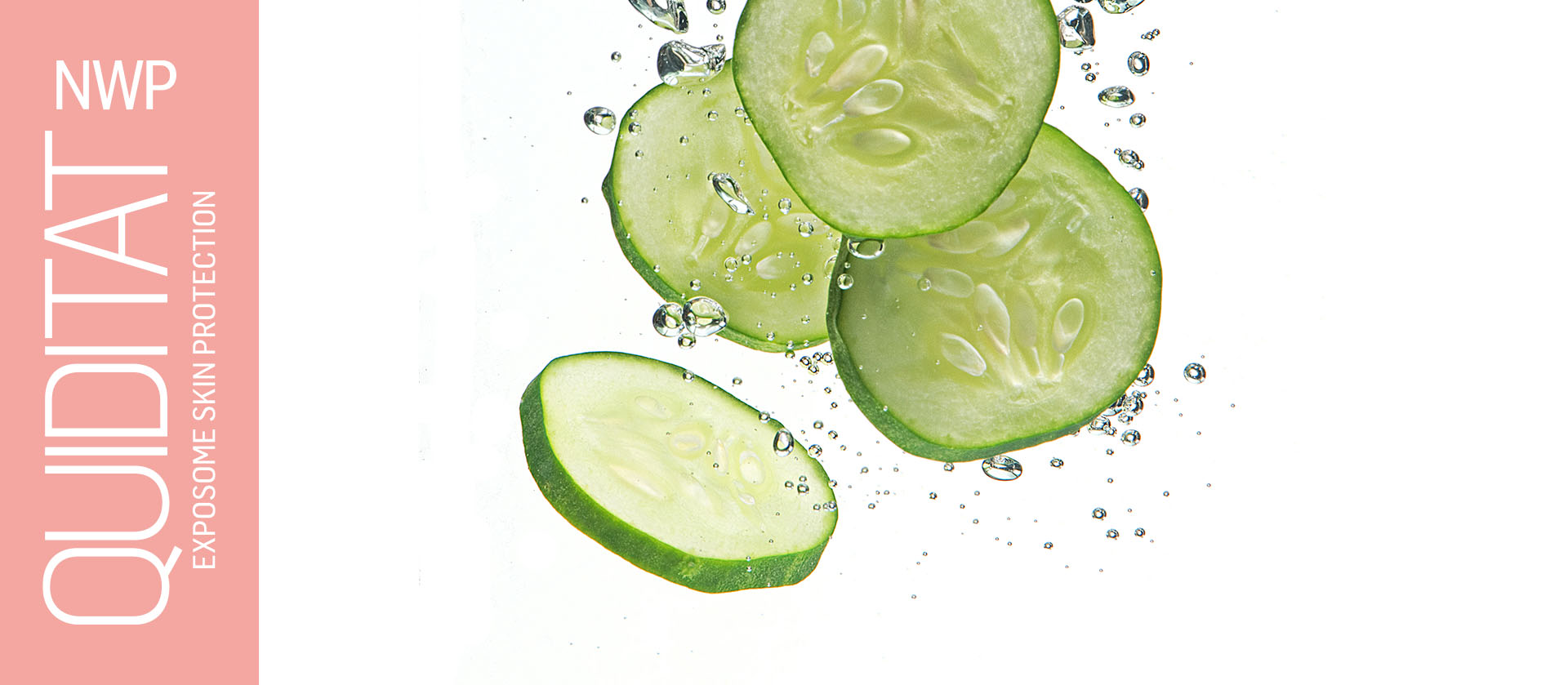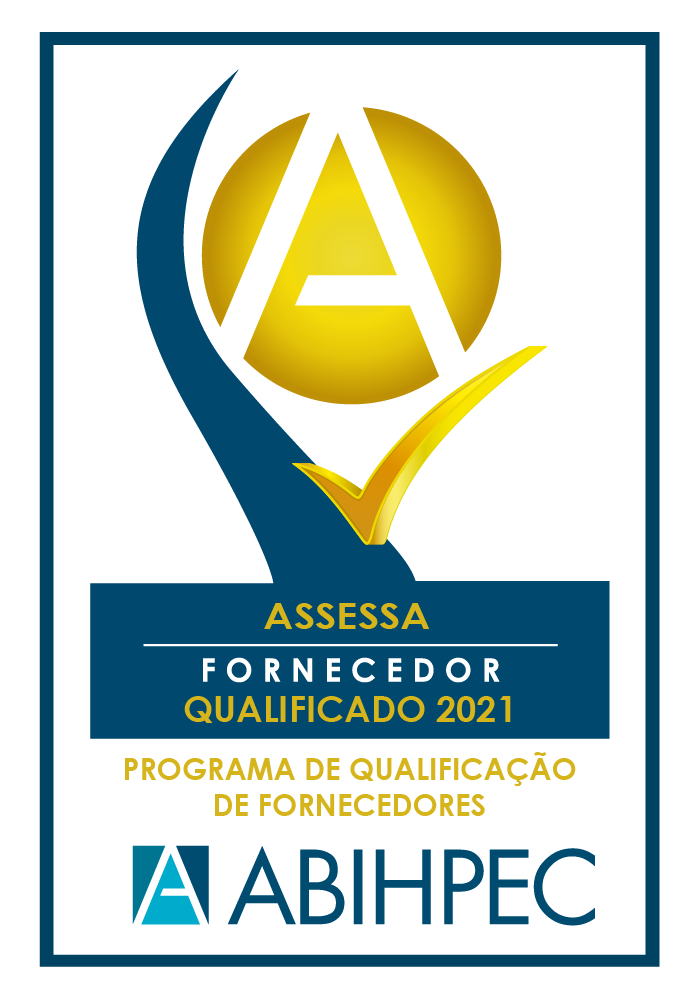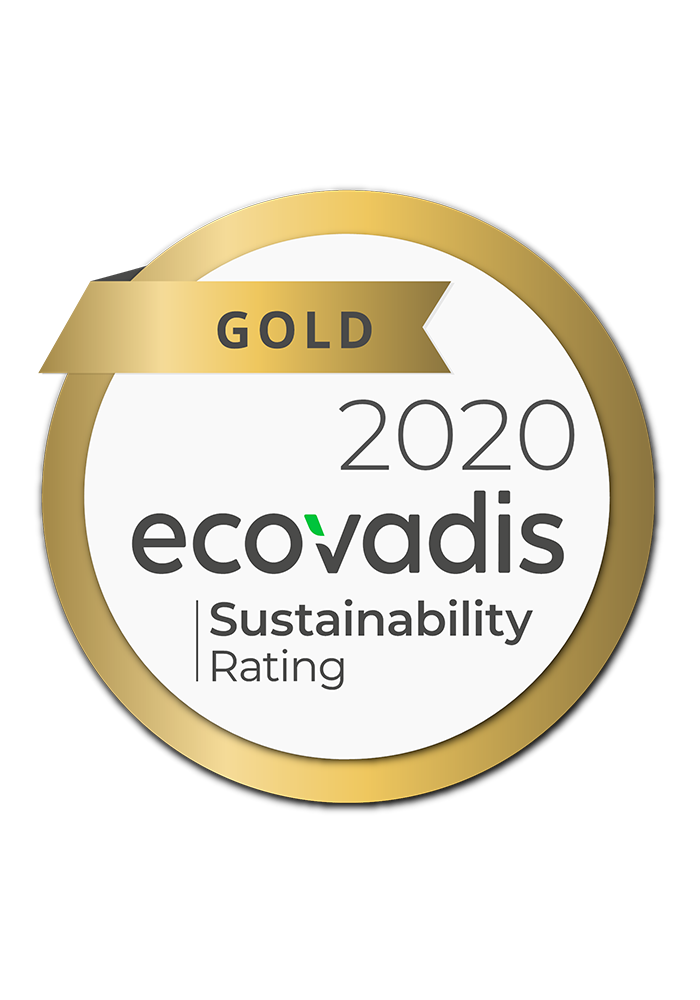
QUIDITAT NWP
Offers broad anti-inflammatory activity and protective action against air pollution (PAH) and smoke. It is a high-performance ingredient composed of active cucumber biomolecules, enhanced by synergy with a polymeric network of marine algae polysaccharides.
INCI NAME
QUIDITAT NWP
Cucumis Sativus (Cucumber) Fruit Extract, Hypnea Musciformis Extract, Gelidiella Acerosa Extract, Sodium Benzoate and Potassium Sorbate.
Exposome and skin health
The aging exposome, comprising environmental factors like solar radiation, pollution (e.g. PAHs) and lifestyle, significantly impacts skin health, driving premature aging.
These factors induce damage through oxidative stress and inflammation, leading to structural degradation of the skin. This compromises the skin barrier, emphasizing the need to mitigate harm for overall cutaneous health.
Natural ingredients such as cucumber, with its antioxidant and soothing properties, and Hypnea musciformis , a source of beneficial sulfated polysaccharides, combat skin issues related to environmental stressors.
Cucumber
ASSESSA technology enhanced components
Cucumber (Cucumis sativus), historically used in ancient skincare and still applied topically today, benefits the skin due to its composition. Its high water content provides hydration, while antioxidants and anti-inflammatory compounds help neutralize oxidative stress, soothe irritation, and support skin barrier function.
These properties contribute to its traditional use for hydrating and calming compromised skin. On the other hand, industrial products based on cucumber extracts do not have the same benefits. The conventional processes cannot extract the bioactive molecules of cucumber, thus nullifying benefits. Aware of this challenge, ASSESSA scientists developed a unique technology to extract and enhance the activity of all valuable components of the cucumber.
Anti-inflammatory activity
(In vitro tests)
Protection of keratinocytes
QUIDITAT NWP is efficient in the protection of cells exposed by surfactants.
PGE release in keratinocytes irradiadet by UV
QUIDITAT NWP reduces inflammation caused by UV radiation, and the release of PGE by 90% in cultures of keratinocytes submitted to irradiation with UVB. It is more efficient than Beta-glucan and Echinacea extract as an anti-inflammatory ingredient.
PGE release in skin cells treated with acids
Quiditat NWP can reduce the release of prosta-glandin E by 88% when phenol is applied and by 83% when is applied salicilic acid to a culture of human keratinocytes.
A release of inflammatory mediators in skin cells treated with surfactants
Preclinical evaluation
(Ex-vivo tests)
TNF-α quantification
Exposure to the pollution stress promoted an increase of 22.04% in TNF-α synthesis, compared to basal control. The evaluated product with QUIDITAT NWP 2% showed a protective effect, reducing TNF-α production by 19,20% respectively, compared to the pollution group and 14.94% lower than its placebo.
AhR quantification
AhR QUANTIFICAtion AhR (Aryl hydrocarbon Receptors), found in all skin cells, is crucial for skin health and immunity, acting as a sensor that triggers skin responses to various internal and external molecules, especially pollution and light exposure. Reducing the expression of AhRs is directly related to the protection os the skin from pollutants.
Exposure to the pollution stress promoted an increase of 66.27% in AhR synthesis, compared to control. QUIDITAT NWP 2% reduces the expression of AhR receptors by 44.44% compared to the control group and 40.00% compared to the placebo group.
Claims
- Exposome shield
- Anti-Pollution/Urban Pollution
- Reduces smoke-induced inflammation response
- Reduces pollution-induced skin damage
- Powerful soothing effect against physical and chemical aggressors on the skin
Usage levels
| PRODUCT | % |
| Cream (eyes area) | 2 to 4 |
| Cream (sensitive) | 3 to 6 |
| After sun | 2 to 5 |


